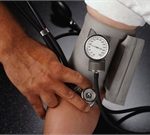
Parents are usually pleased when their newborn seems big and strong, but new research suggests that large babies may be at higher risk for the heart rhythm disorder atrial fibrillation later in life. Atrial fibrillation (a-fib) is the most common heart rhythm disorder, affecting more than 40 million people worldwide. People with a-fib have a five times increased risk of stroke. The association between birth weight and a-fib is controversial, which led the authors of this study to investigate it. Using a special data analysis technique, the researchers concluded that there was a link between greater birth weight and an increased risk of a-fib later in life. Specifically, people with a birth weight that’s 1 pound above the average 7.5 pounds are 30% more likely to develop a-fib, the findings showed. The study is scheduled to be presented Monday at a virtual meeting of the European Society of Cardiology (ESC). “Our results suggest that the risk of atrial fibrillation in adulthood may be higher for large newborns [over 8 pounds, 13 ounces] than those with normal birth weight,” said study author Songzan Chen, from Zhejiang University, in Hangzhou, China. “Preventing elevated birth weight could be a novel way to avoid atrial fibrillation in offspring — for example with a balanced diet and regular check-ups during pregnancy, particularly for women who are overweight, obese or have… read on >



























-300x200.jpg)










